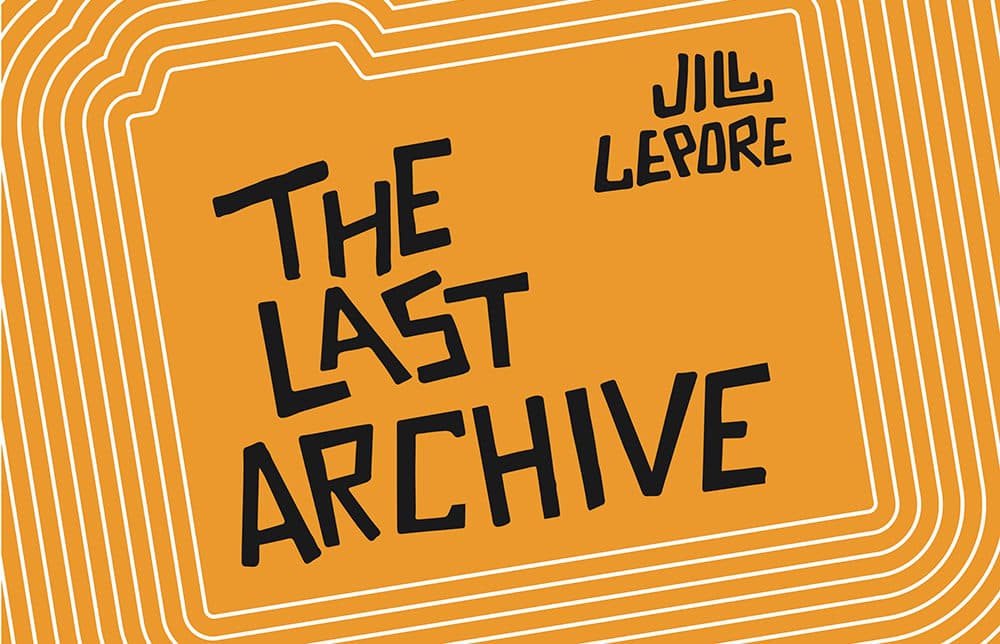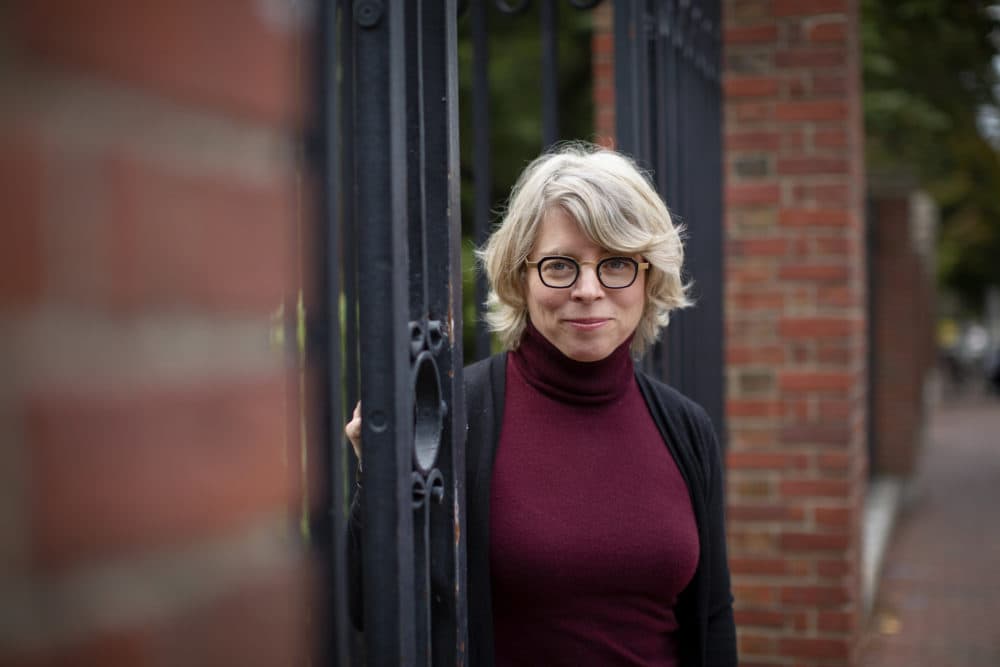Advertisement
Who Killed Truth? Historian Jill Lepore Searches For Answers On New Podcast

Rummaging through the archives of the Harvard Law School library, historian and New Yorker writer Jill Lepore came across the files of a cold murder case dating back to the 19th century.
Lepore became transfixed on the case and grew increasingly engrossed in trying to solve it. But as she pondered who killed the victim, she found herself asking, "Who killed truth?"
“As I was taking the steps that you would take to try to solve an old murder, I realized that those steps kind of recapitulated the whole history of how we know things,” she says. “And it kind of seemed like a challenge to me, like, is there a way to tell the story of the investigation of a single crime as opening up a kind of meta history to the history of knowledge?”
The question is now the theme of the Harvard professor’s new podcast “The Last Archive,” which debuts May 14. Each podcast episode explores a different historical situation related to seeking truth — from a presidential election to the invention of the lie detector. The many threads weave together to explore the truth itself and how it’s become increasingly elusive with time.
Lepore says she was also inspired by a class she teaches at Harvard on the history of evidence. Truth is not something implicit, she says, rather a societal concept defined over centuries of laws and norms.
“What we kind of have come to in that class over the years, together with my students, is … the rise and fall of 'the fact' is kind of a big story,” Lepore says. “Where did the idea of a fact as an elemental unit of evidence come from? And then, what forces have undermined that over the years and especially recently?”

Interview Highlights
On the premise of “The Last Archive”
“When I decided to work on this to develop a podcast, [‘who killed truth?’] seemed like a really good question to ask, because so many fun podcasts actually buy into the tropes of true crime. But they also participate in some of the same weirdnesses, then, of true crime, right? There's a kind of fetish for the fact and the clue. And we go to a trial and we're asking this question the jurors ask about guilt or innocence.
“But all those ways of knowing, ways of assessing what's true, those particular kinds of empiricism that move from the law to the broader culture are kind of a mess right now. So the question of the podcast tries to ask is, how did this become such a mess? Like if we kind of take this mystery not as the story of some single crime — although each episode is a kind of single mystery like that — but blow it up into the much bigger question, kind of what happened to knowledge, who killed truth?”
On the history of “truth”
“The rules of evidence that regulate most of our systems of knowledge today are derived from the rules of evidence in the law. They really do begin with the beginnings of trial by jury in the Anglo tradition, which starts in like 1215: that you need corroboration, that circumstantial evidence isn't enough, hearsay is inadmissible, that you assemble a jury to evaluate the evidence. But the judge decides what evidence will be allowed in and what needs to be excluded because it's unfair prejudice or it's just unreliable evidence.
“All those rules of evidence took centuries to develop. But then they came to form the basis of what becomes really the scientific method. The kind of empiricism that emerges in the 17th and 18th century, all those rules then inform how we do scholarship in the social sciences or how we think about facts in the world of journalism … is my source authentic? Can I get verification? Is this hearsay? Have I stated this fairly? Those, in some ancient way, derived from the very beginnings of the rules of evidence in the law.”
Advertisement
On truth in the modern, digitized world
“This season spends a lot of time thinking about people who tried very hard to come up with ways to decide what was true that were more modern. So, for instance, I tell the story of the invention of the lie detector. Or I tell the story of the attempt by Congress in 1966 to establish a national data center. There was this idea that if there was going to be all this computer manufactured data and computer-stored data about people, that the government ought to have it all in one single place in the same format, which is actually a really interesting way to kind of control information and advance knowledge. But that plan was defeated by people who were opposed to the government having that kind of authority.”
Alex Ashlock produced and edited this interview for broadcast with Peter O'Dowd. Lynsey Jeffery adapted it for the web.
This segment aired on May 6, 2020.
